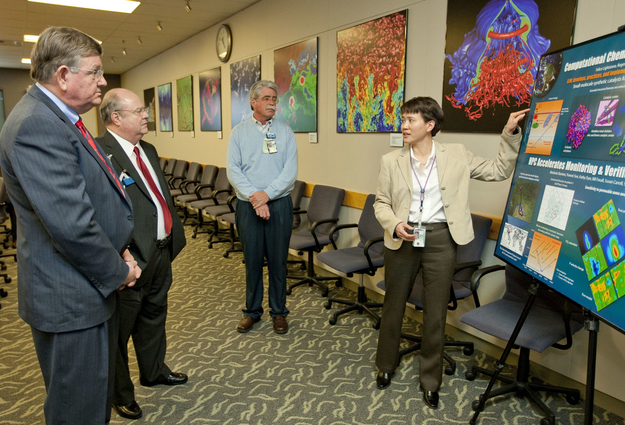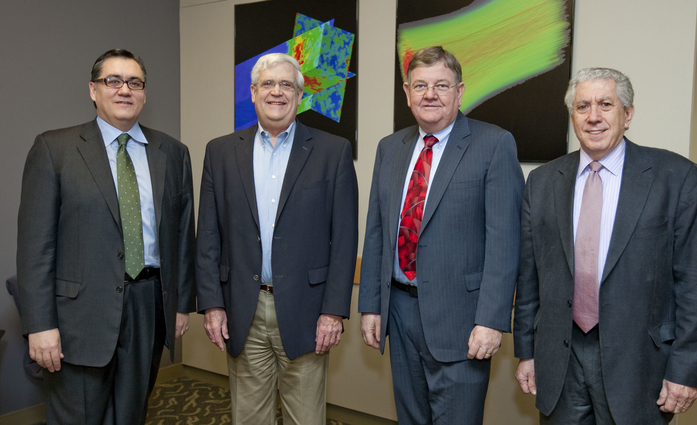Working toward a national energy policy
That's the message former Wyoming Gov. David Freudenthal shared Tuesday during his talk "Energy Policy: A State Perspective," which was part of the Director's Distinguished Lecturer Series.
As the largest net energy exporting state in the U.S., Wyoming has an abundance of natural resources such as coal, oil, gas, uranium and wind. As governor from 2002-2010, Freudenthal was able to adopt energy policies that allowed the state to see a surplus in its coffers coming from energy customers outside the state that were supplied by energy companies within the state.
He said the concept of climate change wasn't an issue when it came to Wyoming's energy resources and how it would affect the state.
"If you are an energy-producing state, you are selling to a community that believes in climate change," Freudenthal said. "It's irrelevant if you support climate change. You can be agnostic. As a matter of policy, it doesn't matter."
While in office, Freudenthal allocated about $60 million in state funds to studying and developing carbon capture sequestration technologies. Some of his key initiatives included the establishment of the Hathaway Scholarship Trust, the Wyoming Wildlife Trust Fund and the School of Energy Resources at the University of Wyoming.
"This represents the genius in leadership that he brings," Julio Friedmann, leader of the Lab's carbon management program, said about Freudenthal. "He's clearly a national leader in terms of putting the thoughts and structures in place where we can pursue these large energy ideas and goals."
Freudenthal said instead of waiting for the federal government to come up with a national stance on energy, he took Wyoming's future in the energy sector into his own hands. He signed into law important statutes including tax codes for wind development and the creation of the regulatory framework for carbon dioxide capture and sequestration.
"If the cavalry would have relied on the federal government, then this country would've never been settled. They would've stayed in St. Louis," Freudenthal quipped.






